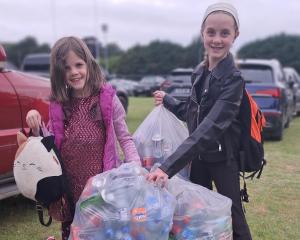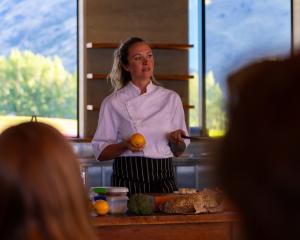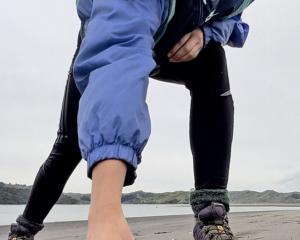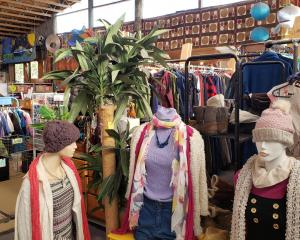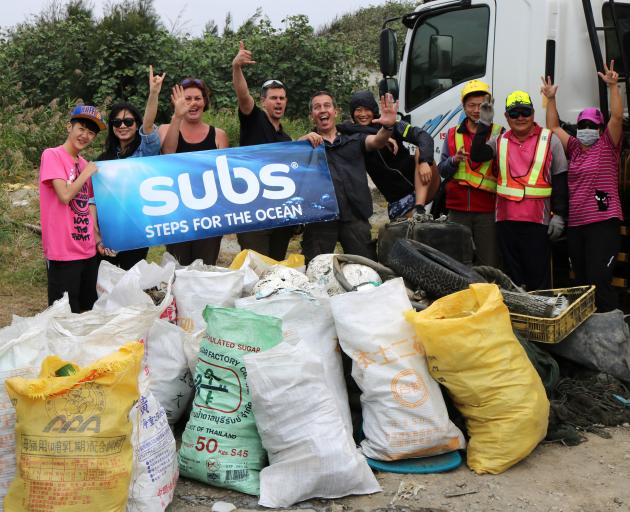
Don’t waste the opportunity that giving provides this Christmas, writes Gina Dempster.

The approach of Christmas always raises two opposing forces in my subconscious which seem to rub along quite happily for the rest of the year. One is the me that loves fun and celebration and the joy of giving and receiving. The other is the me that hates waste and the pressure to buy, buy, buy. My idea of hell is shopping for a list of presents in a mall on Christmas Eve.
I’ve never yet found the perfect way to reconcile the two, so this year I’m taking a new tangent on gift giving. I’m embracing Christmas as an opportunity to support companies who are shifting us away from a make-use-dispose system to celebrating life without waste. It might be as simple as supporting local crafts people who are making beautiful products that last a lifetime, or companies that are finding alternatives to plastic packaging.
Some businesses are going further and making zero waste the heart of their business. I was really inspired by talking to two New Zealand business founders who are embracing a new model of business where the zero waste story is as important as the product.
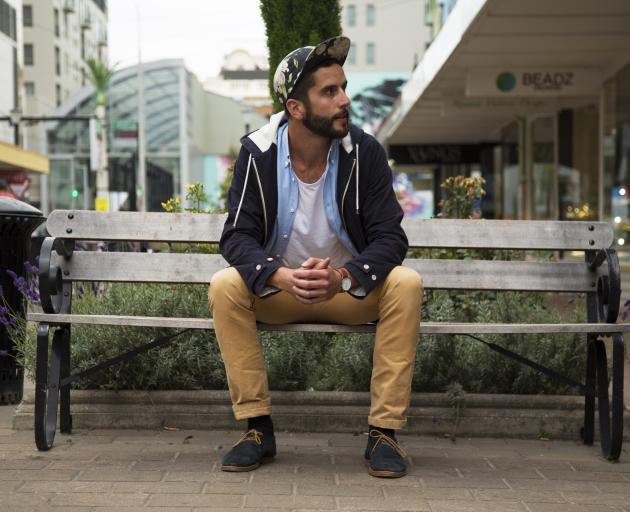
OFFCUT CAPS
Co-founder of Offcut, Adrien Taylor, says that the core reason for the company’s existence is to reduce fabric waste to landfill. This weekend is the two year anniversary of the launch of Offcut, which makes and sells caps made from salvaged fabric; like ends of run, samples and misprints that would otherwise have been thrown out. He’s not exactly sure how many caps they’ve sold, but guesses it’s about 1000-1500, all with a lifetime guarantee.
The genesis of the company came when Adrien was visiting his Dad in a curtain warehouse and walked past a room full of offcuts.
"I asked him what he did with them, and he said he paid someone to pick them up a couple of times a year and throw them in the landfill."
Shocked by the waste, Adrien saw an opportunity.
"Some of Dad’s fabrics were floral curtains, which I’d never hang on my windows as curtains, but I’d definitely wear them as caps on my head."
As well as using upholstery fabrics, Offcut has collaborated with companies as diverse as Swandri, Kokako and Kate Sylvester to source fabric. The run of each cap depends on the amount of fabric available, sometimes as few as 20 of a style are made, and the lack of a standard range is part of the attraction.
"You’re never going to see someone walking down the street wearing the same hat as you," says Adrien.
"Each one is a special, limited edition, New Zealand-made cap."
The caps are sold online direct to the public. New designs are released once a month in "drops". From the launch, people have been fighting to get their hands on them, the first five drops selling out in 24 hours.
The latest drop was yesterday and Adrien says they won’t sell out quite so quickly as the company is getting more adept at meeting demand, while being limited by the fabric offcuts available.
"We make a quality product, and people are willing to pay a bit more, especially if you’re not part of the problem, but part of the solution."

SUBS JANDALS
At first glance they look like any other jandal. But the plastic in your Subs jandal sole could have once been floating in the ocean as plastic pollution. The New Zealand company pledges to remove 0.5kg of debris from the ocean for each pair sold, and director Andrew Lambie says they are ahead of the pledge with 4.5 tonnes of plastic removed from beaches. Subs organise their own beach clean-ups, and also partner here in New Zealand with Sustainable Coastlines and Hauraki Beach Cleaners.
The jandal soles are made of 100% recycled plastic, some reclaimed from the ocean and some sourced from standard recycling streams. The company has a take-back programme, to recycle old Subs into new ones. Andrew grew up in mid-Canterbury and says he saw a lot of plastic fishing nets wash up on beaches when he was a child. A desire to make something from recycled materials from the sea and a brother who worked in the footwear industry influenced him to rethink the iconic Kiwi summer footwear.
Having the idea is one thing, making it happen is a lot harder. The design took 12 months, and finding a factory that was happy to use recycled plastic in their machines was difficult. Then there was the testing phase, which included climbing a 3500m mountain in Taiwan in jandals. With an impressive list of stockists after only a year in business, it looks like recycled jandals could become a true Kiwi classic.
- Gina Dempster is communications officer at Wanaka Wastebusters.
Each week in this column, one of a panel of writers addresses issues of sustainability.

Zero-waste presents that help to change the way we think about, celebrate and live without waste.
OFFCUT CAPS
Taking the zero waste ethos and making it cool. Offcut caps are made in NZ from fabric off-cuts that would otherwise have gone to landfill. The perfect gift for teenagers.offcutcaps.com
SUBS JANDALS
The soles are made from 100% recycled plastic, and each pair funds a clean-up of the same amount of beach plastic. You’ll be helping to clean up the ocean while you enjoy the beach.
ETHIQUE
NZ company Ethique is offering a way to ditch plastic in the bathroom with solid bars for everything from shampoo to deodorant. Packaged in compostable cardboard, they are superconcentrated because you add water in the bathroom. Ethique estimate they have already saved 150,000 plastic bottles from being made and disposed of, and they get rave reviews from customers on their website. ethiquebeauty.com
SODASTREAM
One of the craziest things we humans do is transport water (usually laced with sugar) around the planet in plastic bottles; we use one million per minute. Making fizzy drinks at home using SodaStream cuts waste and the carbon footprint by 80%.
BOTTLES AND BAGS
Why would you use a disposable plastic bag or bottle when you could feel good about re-using your own gorgeous, long-lasting one? Plastic Bag Free Wanaka sell affordable reusable stainless steel bottles and cotton bags around Wanaka (yes, I have a vested interest!), and all profits support their work to reduce the use of single-use plastic. From Health 2000 and other stores in Wanaka.
A BOOK
Economist Richard Denniss defined affluenza in 2005 as "that strange desire we feel to spend money we don’t have to buy things we don’t need to impress people we don’t know".
In his new book, Curing Affluenza: How to Buy Less Stuff and Save the World, he tries to light a way out of the consumer trap. By giving up the thrill of the purchase we can change the culture of consumption and the environmental harm it causes. From University Book Shop Dunedin, www.unibooks.co.nz
OTHER IDEAS
Concert tickets: grab them a ticket to their favourite band (and one for yourself).Truffles, preserved lemons, cherries: Make ’em or buy ’em, delicious and seasonal foods are part of the ritual of Christmas.Outdoor toys: A bike, a kayak, a surfboard or a pair of good hiking boots mean we can make the most of the beautiful planet we live on. Looked after well, they can last for decades.




